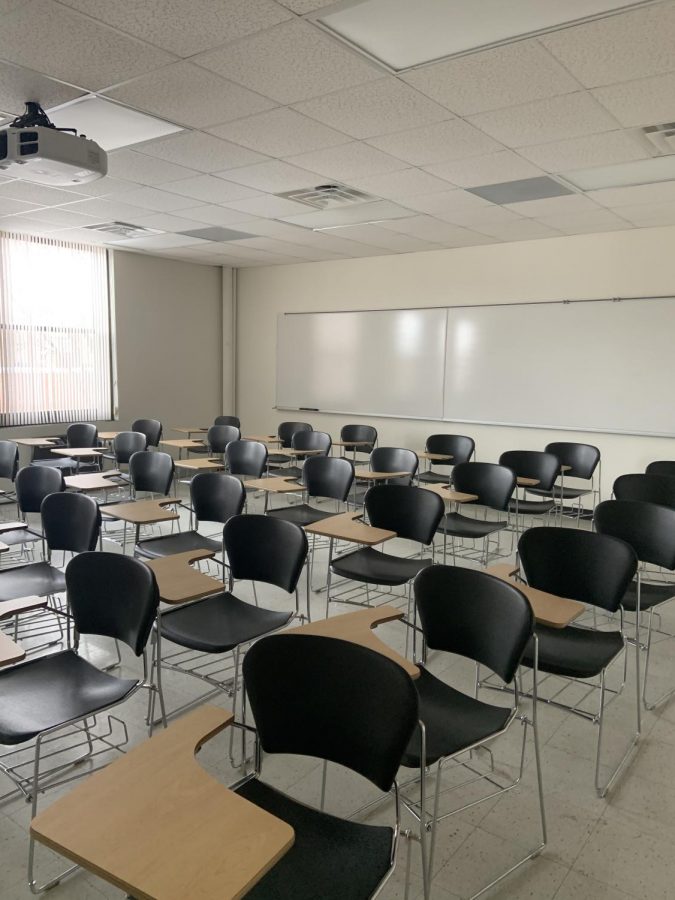Experiencing tiny desks at UWL
February 14, 2020
“We’re not just talking about ‘fat’ students, we’re talking about having spaces where all bodies can be included,” said Laurie Cooper Stoll, professor of sociology and criminal justice at the University of Wisconsin-La Crosse.
“This isn’t an issue with just one community, this is actually an accessibility [issue] across the board for every student, faculty member, staff member and people who work on campus,” said Cooper Stoll.
Cooper Stoll teaches a class at UWL about how fat is a social justice issue. In her article “Fat is a Social Justice Issue, Too”, Stoll writes, “fatphobia is a system of oppression worthy of greater theoretical and empirical consideration in humanist sociology.”
Regan Andurs, a business management major at UWL said, “I was very much looking forward to this class, [that had] to do with something I am passionate about. I was early to the class and I walked in and had an ‘ugh,’ moment because I saw the chairs were the blue desks that flip over. I’ve always struggled with sitting in those. It is uncomfortable to sit in and I am also taller too, so I have to scrunch down. It is really an uncomfortable environment to work in and I find myself being self-conscious of what I look like in those chairs.”
Kobe Vines, who is a running back for the UWL football team said, “I feel that me being self-conscious takes away from me learning when I’m not focusing as much as I could be.”
EmMary Czyscon, a freshman studying psychology and women, gender, and sexuality studies, said, “In Centennial Hall, I went in the room, 3305, it had the flip-down chairs. I just felt very uncomfortable when I first walked into the room, because you just look and you see all these people that are sitting comfortably in the chairs and I have to bend down and slide in, and it’s almost embarrassing because I look around and I’m sitting there, the desk part is pushing into my stomach and everyone is sitting comfortable and they don’t have to feel like their hunching over a desk.”
Czyscon said, “I am very aware of not being comfortable in a chair, in a learning environment where I should be comfortable.”
Associate director of planning and construction at UWL Scott Schumacher said, “We have many generations and inversions of facilities and not just classrooms. It’s a fine balance between working on buildings like [Centennial], or the science building and then trying to go back to other spaces and a lot of it, there are specific problems like when the lights burn out, everybody notices.”
“We’re always learning to do more, and a lot of times it’s just someone pointing out ‘hey, don’t forget about me’ and we think, ‘holy cow, we hadn’t seen it through that lens’, you look at it that way, you say well, there’s some very simple changes that you can make that make it easier,” said Schumacher.
“We always try to get as much student input as we can, especially when it comes to things that students touch more often,” said Schumacher.
He said that when office chairs were being selected recently for side seating, or accessory seating, one of the deans that he worked with told him not to show them to the faculty, but rather the students because they would be the ones coming to the offices.
“It kind of clicked for me,” said Schumacher. “I was like, wow, that was actually a very pertinent point. If you bring a concern to us, we will get it on the radar, and there are some things we can do tomorrow to at least help. We should always move forward to keep improving.”






